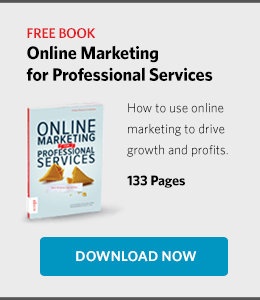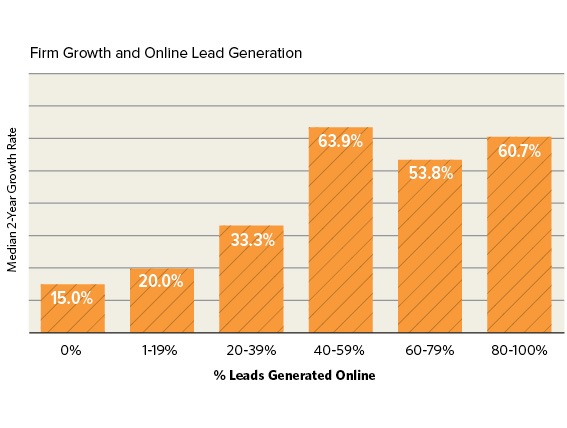Let’s face it. There is a certain reality around the professional services business model that, in very specific circumstances, allows for growth without much attention to marketing.
Perhaps it’s accidental growth, but there are more than a handful of firms in the professional services ecosphere that have grown simply because they secured the right contract or the right client, and marketing has had no role in that firm’s evolution.
It’s been left to the wayside, viewed as non-essential, even fluffy.
There is a point in time where even these firms realize they’ve ridden on the laurels of happenstance for too long, and that without strategic, directed, and targeted marketing, they begin to fall behind the competition.

Even so, there is the question in the back of some leaders’ minds around the extent to which marketing is really part of the overall growth equation. Is it fluff or fundamental?
For the answer, we’ll offer up three key criteria for consideration.
Is marketing scientific?
Unequivocally, yes. Advances in behavioral science, technology, and professional services research have all led to the rise of an entirely new discipline of scientific marketing, where strategies and recommendations are grounded in data, not best guesses. Based on marketplace research, marketers identify and quantify the most effective messages, strategies and tactics, providing measurable results.
Savvy marketers also use methodologies like A/B testing to figure out the best approaches for firm websites, emails, and other communication with clients. Marketing is no longer a guessing game—it’s a science-based approach to understanding how your firm can attract more new business.
This rise of empirical thinking has contributed to a much deeper understanding of the professional services industries. The Hinge Research Institute has published studies on how buyers buy, how firms can get more new business from referral marketing, and the impact of Visible Experts on a firm’s bottom line, just to name a few.
Are marketers concerned with results?
The members of your sales department aren’t the only ones interested in quotas and ROI. Marketers also use metrics to inform a variety of decisions. Thanks to Google Analytics, reports from CRM software and social media analytics, they can use numbers to gain a better understanding of each facet of client communication.
SEE ALSO: 5 Reasons Why Data is the Heart of Professional Services Marketing
By constantly watching these numbers and analyzing how they do or do not change, your marketing department can learn the answers to questions like:
- Why is website traffic up or down?
- Why did this email outperform that email in open and click through rates?
- What time of day are our Tweets most likely to get attention?
- Which keywords are performing well with a certain target audience?
This information can then be used to grow inbound leads and turn those leads into more new business, resulting in higher revenue for your firm. The most effective marketers aren’t just asking the right questions—they’re also getting the right answers.
Does marketing drive growth?
We’ve talked a lot about numbers so far. Let’s take a look at some.

The Hinge Research Institute’s landmark study on online marketing for professional services found a clear correlation between online lead generation and firm growth. Online marketing is a good shorthand for a modern, scientific marketing practice. Online tools and the ability to quantify the digital space are what really allow for an empirical approach to marketing. And as we can see, the firms undertaking these efforts are far ahead of their competitors in growth.
Marketers see the correlation between website traffic and revenue firsthand. They already know that if traffic to your website is down, the revenue for the firm will be impacted—which means that if they aren’t doing their job well, the growth of the firm could suffer.
In short, today’s marketers are focused on growth. In fact, the most effective marketers take growth as their overriding goal, constantly brainstorming new ideas to drive engagement, leads, and revenue. The best marketers understand that their department is the very foundation of firm growth.
And that doesn’t sound too fluffy, now does it?
Additional Resources
- The Battle for Marketing Talent in Professional Services
- Why Managing Partners Don’t Trust Their Marketing Departments and What to Do About It
- What You Should Expect From Your Marketing Department
How Hinge Can Help
Hinge has developed a comprehensive plan, The Visible Firm℠ to address these issues and more. It is the leading marketing program for delivering greater visibility, growth, and profits. This customized program will identify the most practical offline and online marketing tools your firm will need to gain new clients and reach new heights.

